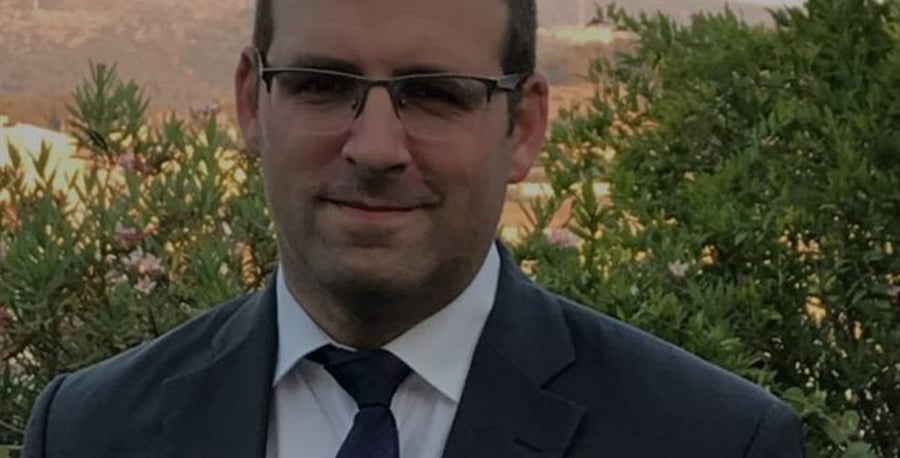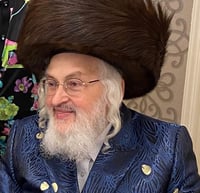
I want to turn the spotlight not only on the person himself who suffers from suicidal tendencies, or wants to end his life, this time I want to turn all the spotlights on us, as a society, as a family and as a nation. And from here comes the mutual guarantee between us because "all of Israel are responsible for one another" and moreover, the Torah commands us to "love your neighbor as yourself".
Therefore, I want to address each and every one in our society personally here. Open your eyes, extend a helping hand, lend an attentive ear, and open your hearts. Do not ignore the distress of those around you, and in doing so, you will save many souls and entire worlds that are closely intertwined with your lives. In the following words, I will indeed address the issue of suicide according to Jewish law, but it is important for me to emphasize that if we do not turn our gaze, there is a possibility that environmental awareness and support could prevent some cases of suicide, God willing.
"Rabbi, is it true that suicide is forbidden according to Jewish law?"
"Sometimes I am asked this question. So, yes, according to Jewish law, a person is forbidden from taking their own life. However, I don't like this question because it reflects the negative aspect and presents Judaism as a force that only imposes obedience. But I think it's more than that. It's not just a matter of obedience; it's a matter of meaning. In other words, it's not just a prohibition to end one's life – there is an obligation to live them.
"It's important to understand: Judaism has a highly optimistic approach towards life. Judaism does not emphasize the weaknesses and failures of humans. On the contrary: it trusts in humanity, encourages it, and believes in it. When the Almighty decided to impose commandments on humans to fulfill, and on the other hand, prohibited various other actions, it is an expression that He believes we are capable of it. This is an expression that He believes we have a role in this world, and that we are capable of fulfilling this role.
The entire Judaism is based on this deep belief that the Almighty has in us, human beings. Indeed, the perspective of Judaism is that life itself is holy. We are all familiar with the well-known principle of the sages: "There is nothing that stands in the way of preserving life." Except in extreme cases, a person is obligated to do everything possible to stay alive, even if it means not observing the religious laws. Why? Isn't a person's soul more important than their body? But the answer is simple and it's written in the Talmud regarding the matter of desecrating the Sabbath: "Let him violate the Sabbath once, so that he may observe many Sabbaths."
We look at the long term, at the entirety, not just the moment. We are not trying to save a person's soul in a specific moment, but rather trying to continuously and consistently save and elevate the entire personality. It is preferable to violate the Sabbath once, so that the same person can ultimately observe many Sabbaths. At the moment, the most important thing is to live, to maintain the basic conditions so that a person can continue to act in this world to the best of their ability.
This thought is also related to desperation. "Suicide is a permanent solution to a temporary problem," is a common saying. What is important to consider in this statement is that the problem is indeed temporary, and we must not only focus on the temporary, the momentary, the passing. A person's life is too important, too sacred, too meaningful to be relinquished due to temporary distress and pain, no matter how difficult they may be.
During this period, the Days of Repentance, Rosh Hashanah and Yom Kippur, we sometimes tend to focus on all the wrongs we've done, all the mistakes we've made throughout the year, all the times we tried and failed. But let us remember in the same breath that those things are momentary, temporary – while our connection with the Divine is timeless, eternal, and God also desires it. From this arises the great attribute of mercy from the Divine, forgiving us for everything we've done, essentially saying: this passing year has come and gone, what happened, happened. Let's stop dwelling on the past and redirect our gaze towards the future.
Take a breath, gather strength, and with the support of your family and many friends who all wish you well, remember that tomorrow, with the help of God, will be better.
======
Rav Yoni Rosensweig is the rabbi of the "Netzach Menashe" community in Beit Shemesh, accompanying the organization "MOSHE – Community Lifesaving" towards the upcoming conference titled "From Silence to Prevention – Youth and Adolescents' Suicide," which will take place on the 24th of Elul, 5783 (September 10, 2023).

















